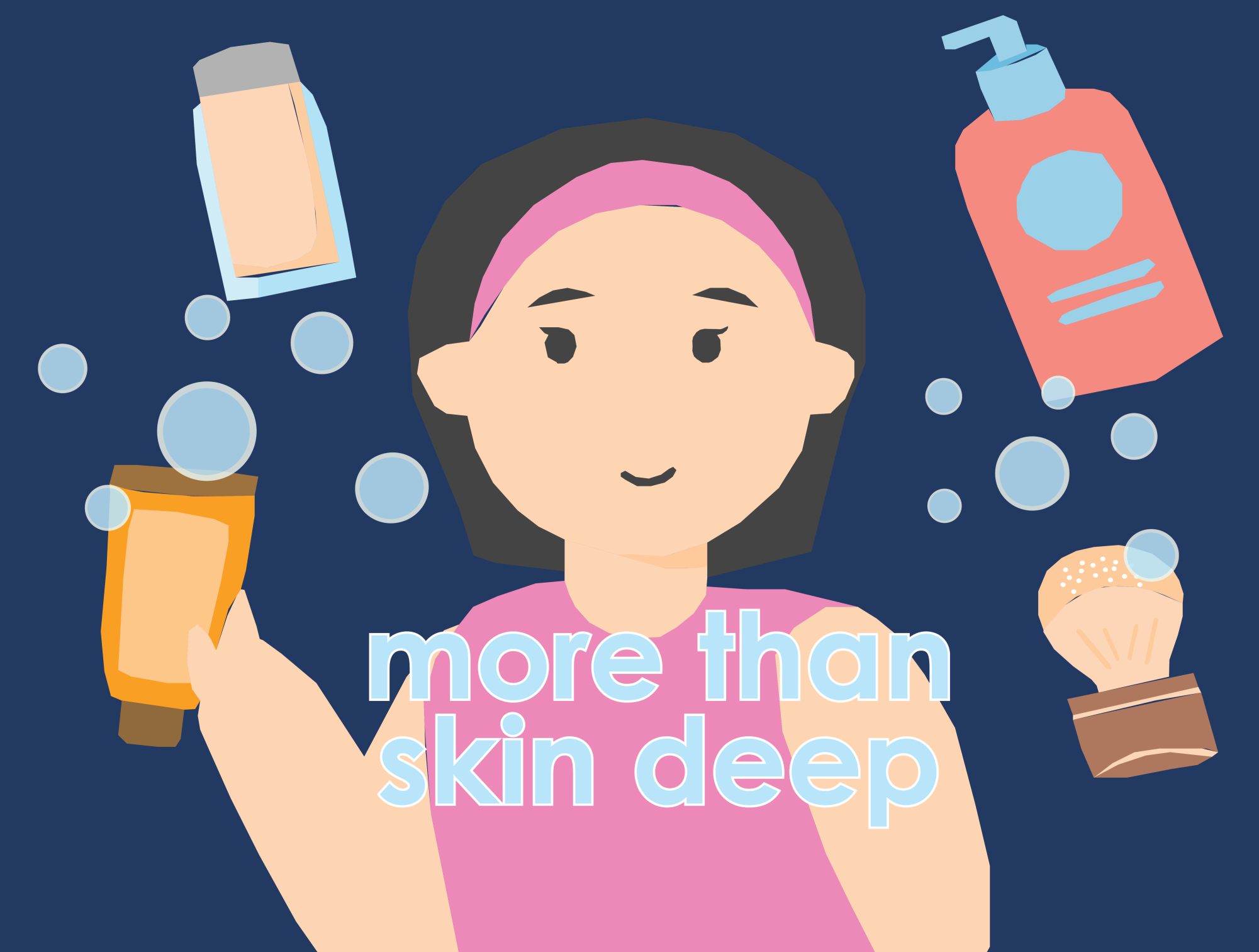As a young child, junior Berit Van Beynen had never expected to face drastic skin issues. It had simply seemed like something that occurred to other people. However, Beynen said she was just twelve years old when problems with her skin began.
“When I was in middle school, my face started randomly turning really bright purple when I touched it. If I accidentally touched it, it would turn purple and all splotchy and it’s really annoying,” she said. “This morning, I was at the gym and I looked over, and my face is dark purple on one half, and I’m just like, this is too much.”
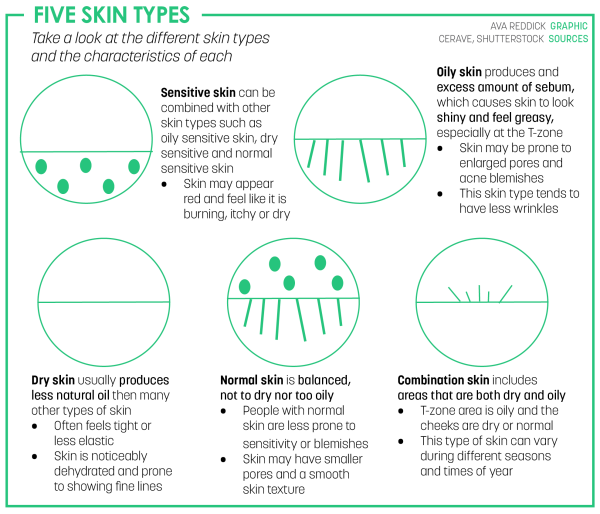
At an even younger age than Beynen, sophomore Jasper Zhu experienced worsening of his eczema issues when he was in the third grade.
“In third grade, I remember when my skin started having problems, and I had to miss a couple days of school, because when my arms would rub against my clothes it would just feel uncomfortable and have a little pain,” he said. “There was a kid who didn’t understand it, but I don’t think he was trying to make fun of me. He actually thought I had chicken pox, I wasn’t offended but I thought it was funny. Most people just had concerns about why my skin was the way it was. People didn’t seem like they were making fun of me but also not too supportive. I’m okay with people being curious about it, but in the end I want them to understand.”
Beynen said not only children express their curiosities to those who look different, but oftentimes teenagers end up being callous in their inquiries as well.
“Teenagers do that a lot, they ask questions and don’t try to be hurtful, but they do end up being hurtful and people just need to be more aware of what they are doing and their language towards people with skin conditions,” she said.
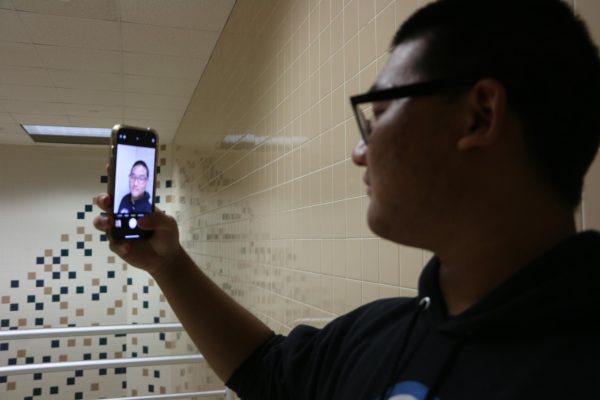
Junior Vincent Gao, who has struggled with skin problems since middle school, said he had felt uncomfortable from the normalized culture of mocking people who look different.
“I think people with skin conditions are perceived as irregular and don’t fit in, as they look different and might behave differently,” Gao said. “Like there’s a lot of shows where a character is different and made fun of, and I sort of have sympathy for that.”
Similarly to Gao, Beynen said that the media’s portrayal of skin conditions created unrealistic standards and fosters discrimination.
“With all these skin conditions like vitiligo, rosacea and acne, literally any hyperpigmentation of any sort, shown often in the media, portrays a white woman with glowy porcelain type skin,” Beynen said. “So people who have vitiligo, rosacea and acne don’t feel as accurately represented. They feel like the media is the norm, and feel discriminated against when they don’t represent reality.”
Zhu agrees with the idea of high standards in public media.
“People on instagram only post their best photos, to maximize how good their photos look,” he said. “They aren’t gonna show any flaws, so the average standard is high.”
Joshua Peterman, an IB US History teacher at CHS who suffers from vitiligo, agrees with Zhu and Beynen on the idea that the media sets high standards for the incoming generation.
“People can say what they want, but ultimately, what social media and all the media in general is going to say is that you need to have this clear skin, and it needs to look a certain way,” he said. “Most people just don’t look like that, and that needs to be something that people realize more.”
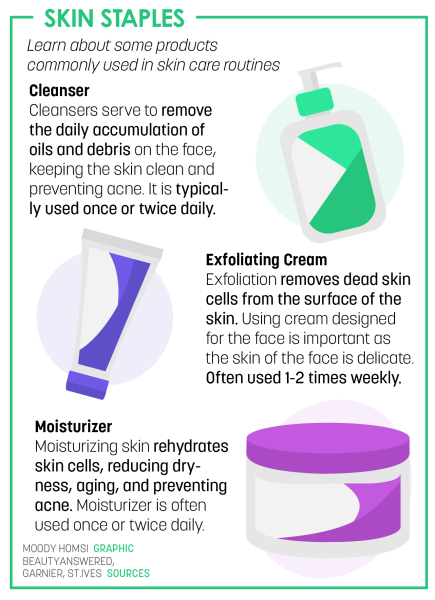
Beynen said she has struggled with her skin for many years, and said people should be more empathetic.
“There will be times when I’m taking group photos, it will show one half of my face that turns purple, and the other half will turn red, and they will take me out of the photos. It’s just really hurtful, and makes me feel awful, but also just embarrassed,” she said. “People don’t understand that it just isn’t something you comment on about other people.”
Conversely, Junior Vincent Gao said he adopted an indifferent attitude towards his acne.
“To me, the acne doesn’t matter,” Gao said. “I just accept what I have now and although it affects how I look, it doesn’t affect who I am. Personally, I haven’t had someone call me out on my skin condition or been racist against me, but I’ve seen a lot of racism and hate on social media,” Gao said.
Peterman agreed, and said that he had learned to live with and accept his vitiligo.
“I guess it used to bother me at first, but then I kind of just realized, everyone has something different about them,” he said. “We all just need to learn to embrace them.”
Beynen said social media has played a large part in shaping societal beauty standards.
“Online people judge a lot based on things they can’t change like ethnic traits. Like some characteristics run in a region of a world and people judge people like being short and brown hair or freckles or it just depends but you can’t change it.”
Similarly, Gao said his experiences on social media reflected a larger social issue.
“On social media there is a lot of what people think of others, and what people think of themselves. [Social media] serves as an outlet for people to express things they wouldn’t say in person. Instagram comments on public reels are deadly, they always have some racist stuff or say things that harass the poster,” Gao said. “In our current society, I know there are a lot of people who think that racism or basing off skin color and appearance is really funny, but I don’t accept that. I’m not too affected as although it is hurtful sometimes, it’s not directed at me personally, and I have my own values.”
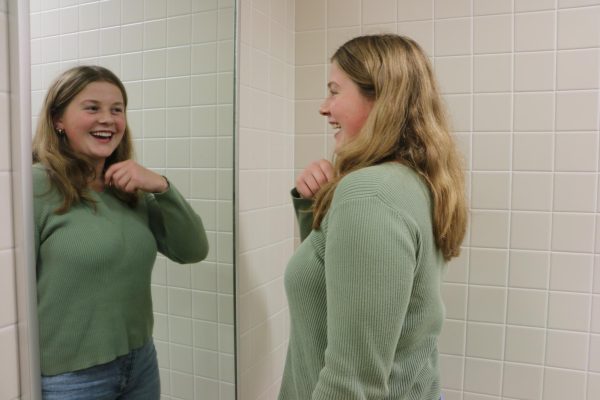
In a society where appearances often take center stage, Gao’s journey is a refreshing reminder that true beauty goes beyond the skin.
“My advice is to just ignore any of the haters and negative comments, you can focus on the outside but what’s important is your character,” Gao said. “It might sound generic but what matters is on the inside and not the outside and you will find people who treat you regularly.
Similarly, Zhu said he felt like the issues with his skin did not cause severe issues in his life and he was able to overcome his self-esteem challenges.
“When I was younger I would get these dry spots on my face a lot, it made me a little self conscious, but that was an easy fix and I just had to moisturize my face a bit,” Zhu said. “ I still have mild discomfort throughout the day but it doesn’t affect me too much. And while occasionally there are some remarks, they don’t affect me that much either as people are understanding after I tell them. Nowadays I feel like it’s not as big of a problem since there’s more treatments like Eucerin and Aloe Vera and I’m happy that my really bad eczema flares won’t be as common. I think it’s important to know that people will still have to get things done, go throughout the day, and you can’t let these things get in the way.”
On the other hand, Beynen said the advancements in treatments and technology regarding skin have fostered a damaging expectation, especially regarding aging.
“With aging, I feel like there’s always an anti-aging serum, but it’s a natural thing and you can’t just reverse it, and people want to reverse it and hate aging. Going into the spectrum of acne we’ve seen the improvement in treatments like Accutane but there are horrible side effects. They quote curing acne, but maintain the idea that if something is not perfect, you need to correct it.”
Ultimately, Beynen said people should be more welcoming to people who may look different.
“People should just be more welcoming of others, and the troubles they have experienced with skin conditions. It affects everyone, it will affect you and you need to be more open to the changes that come with time, such as age, scars after giving birth,” she said. “People need to be more open about it and instead of trying to fix people’s problems, just accept them and let them be.”

